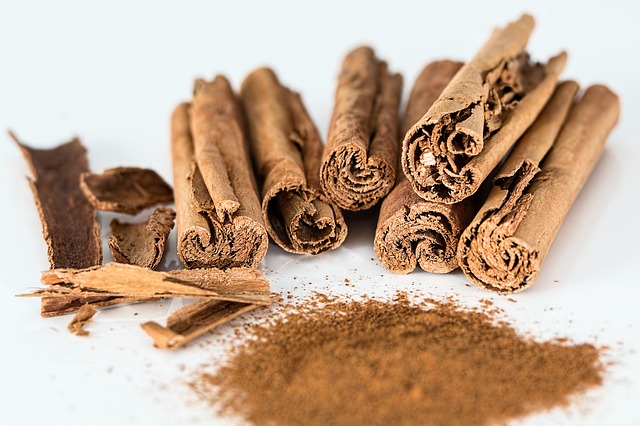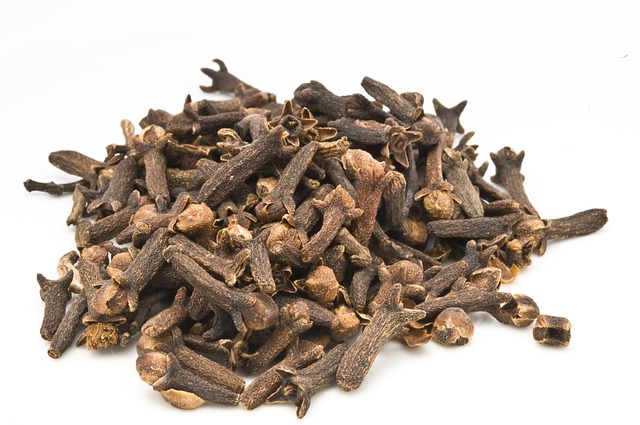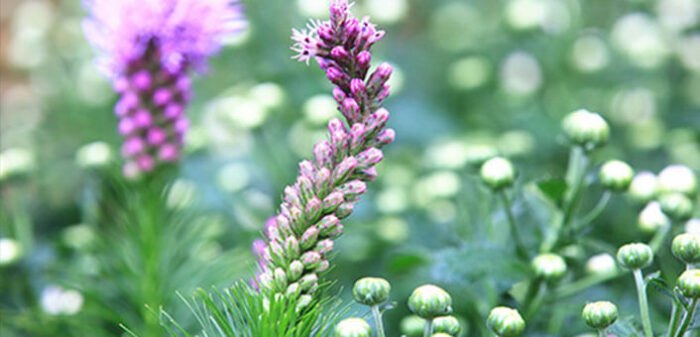Boost Fertility and Improve Libido Naturally


We may not want to talk about it, even when we really need answers, but sexual and reproductive wellbeing is just as important as any other bodily function. And while a healthy lifestyle and proper diet may go a long way, we all need a little help sometimes. The amount of information on the subject can be deafening, but the answers are often quite simple. Maybe it is time to explore the virtues of natural solutions to sexual and reproductive health concerns.
Did you know that over 80% of the world’s population incorporate natural herbs into their medical protocols? But that percentage in the United States is only about 19%, according to the National Institute of Health. When applied correctly, herbs can supplement your diet with vitamins and nutrients and correct biological imbalances that often lead to chronic illness. They can be powerful tools in the treatment for everything from the common cold to, yes, even infertility and libido.
And there are many herbs that provide a safe and effective way to support your sexual health and vitality and improve fertility. Whether you are actively trying to conceive or struggling with impotence or erectile disfunction, herbs may be a great natural solution. Female infertility and male infertility are commonly caused by pre-existing health conditions, environmental factors, such as chemicals and toxins; and lifestyle factors, such as diet, weight, recreational substance use and physical activity.
Here are three herbs that can boost your libido and improve fertility and hormonal balance. Be sure to consult your doctor or fertility specialist before you begin any herbal supplements or regimens to avoid any adverse interactions between herbs and any other supplements or treatment you may be currently using.
Cinnamon Bark (Cinnamomum cassia)

Cinnamon is a warm, sweet, powerful spice is that has been an effective treatment for infertility, especially for women with irregular menstrual cycles. It helps control bleeding, uterine hemorrhage, and excessive menstrual flow. Cinnamon Bark also checks flooding and relieves menstrual cramps. It can be used as a tincture every fifteen minutes to stop uterine bleeding. Researchers are not quite sure why cinnamon is effective in regulating a woman’s cycle, but they believe it may be due to its beneficial effect on glucose and insulin processing. This wonderful herbal tincture be beneficial for women suffering from Polycystic Ovarian Syndrome, or PCOS. Cinnamon has been used to treat all sorts of uterine infections and stop vaginal discharges in affected women.
Cinnamon has been used for centuries in Eastern and Ayurvedic medicine to increase the amount of testosterone and for erectile dysfunction. The beneficial properties of cinnamon for men are not only to improve erectile function, but also to improve sperm motility, concentration, glutathione level, and catalase activity in testicular and epididymal tissues. This herb is a good source of vitamin K, iron, calcium, manganese, and dietary fiber. It also contains important nutrients like vitamin B1, B2, B3, B6, B12, vitamin C, and D.
Pregnant women or those allergic to Balsam of Tolu should not use any Cinnamon Herbal Supplement. For diabetics and those taking blood thinners, Cinnamon tinctures may cause blood glucose to be excessively lowered when combined with insulin and they should consult a healthcare provider before using this herbal supplement. it can also have a blood thinning effect so it should not be taken with anti-clotting medications such as Coumadin (warfarin), or by people with bleeding disorders. This product is not recommended if you have a tendency toward excessive menstrual bleeding, without consulting a physician, as it is a uterine stimulant. Men with, or recovering from, prostate cancer should not take Cinnamon. Taking Cinnamon and antibiotics together may make the antibiotic not work for you. Increased heart rate (pulse), feeling dizzy, shortness of breath and redness of the face may occur if you take too much Cinnamon.
Clove Bud (Caryophyllus aromaticus)

Clove is a natural aphrodisiac and one of the most ancient and widely recognized spices in the world. It has been used for the benefits of its medicinal, culinary, and recreational properties. Clove is a unique spice for boosting the male libido that has been used for centuries to enhance intimate performance, improve testosterone and prolactin levels, and address erectile dysfunction. Cloves can help slow the progression of erectile dysfunction by improving blood circulation and due to their antioxidant nature. This might occur due to several factors such as nerve damage or oxidative stress due to constricted blood flow, etc.
It has also been used, historically, in alternative medicine, as an effective aid in the treatment of premature ejaculation. It must be applied with a carrier oil, to avoid irritation, and applied to the outer skin of the penis before sexual intercourse.
Because sexual dysfunction is more common among patients with liver disease, the compound eugenol, found in cloves, is thought to help in liver disorders. In low doses, this herb may minimize sexual dysfunction for those affected. Cloves can boost testosterone levels but remember that anything consumed in excess can have harmful effects to the body, so use with discretion. While consuming cloves at lower doses may improve testosterone levels, while higher doses resulted in damage to the testes and decreased testosterone levels.
Sexual response is heightened by nervous stimulation and the sterols and phenols found in Cloves can boost the sensation, improving the experience for both men and women. And while there is no scientific evidence that cloves improve ovulation and fertility in women, cloves may improve the strength of the sperm to fertilize.
The aphrodisiac benefits of cloves for women have been backed by scientific research. It may improve the level of ovulation, and possibly resolve the problem of infertility. Clove also improves energy in energy and promotes a more youthful appearance. However, according to recent studies, clove during pregnancy is safe to use as a spice in food but could be problematic if used regularly as a medicine during pregnancy without asking your doctor. This is because regular use of clove during pregnancy can stimulate muscular contractions of the uterus and causes premature labor or miscarriage.
Cloves are a rich source of manganese, which acts centrally to help increase sex hormone production and are enriched with Vitamin E, (a potent antioxidant that can help prevent or slow the progression of Erectile dysfunction by limiting oxidative stress), Vitamin K, Potassium, Calcium, Magnesium, Potassium, Iron, Zinc, Folate and Choline.
Avoid using this herb if you are allergic to cloves. If you have diabetes, monitor your sugar level at regular intervals. Undiluted clove oil may cause harm and damage to the skin. Cloves can increase the risk of bleeding, for people with a sensitive stomach or those having heartburn and gastrointestinal ulcers. Eugenol in cloves can cause bleeding during or after the surgery, so you should stop eating cloves, two weeks before and after the surgery. Pregnant and lactating women must also be cautious before taking cloves since there are no human trials on the effect of cloves on pregnant women. It is also important that you check for possible allergens before using cloves. Some compounds in cloves may interact with drugs. Always check with a healthcare practitioner if you are taking any medications.
False Unicorn (Red Clover)

False unicorn, also known as Red Clover, is harvested from the underground stem (rhizome) and root of the plant to make herbal medicine. The plant supplies rare trace minerals including sulfur, copper, cadmium, and cobalt. is also full of vitamins and minerals, including vitamin C, potassium, and calcium. These nutrients are necessary for a healthy body, which is also a must for healthy conception and pregnancy. Women customarily use false unicorn for treating ovarian cysts, menstrual problems, menopausal symptoms, vomiting during pregnancy, and infertility, or to normalize hormones after discontinuing birth control pills. High in phytoestrogen and isoflavones, False Unicorn helps promote hormone balance in women. When these two compounds work together, they create a surge in estrogen that promotes egg production and prepares the body for ovulation.
False Unicorn Root was used by Native Americans and early settlers for virtually all complaints, including liver and kidney ailments, worms, fevers, and indigestion. But perhaps its greatest value is its effect on female disorders of the reproductive organs, including menstrual and menopausal symptoms, post-hysterectomy or to restart the system after years of contraception. Naturopathic doctors believe that False Unicorn Root acts like weak estrogens in the body that help balance hormone levels. It is believed this occurs, either making up for a shortfall of estrogen or encouraging your body to excrete excess amounts.
False Unicorn can be beneficial in cases of early menopause, and has been used to relieve vaginal dryness, hot flashes, night sweats, mood swings, depression and other symptoms related to menopause. The herb may also help treat conditions such as endometriosis, vaginal discharge, prolapsed uterus, pelvic inflammatory disease, pelvic inflammation, and ovarian cysts. It is also believed to soothe genital and urinary complaints and infertility in both men and women.
Herbal traditions have been used for centuries to help boost libido and fertility, without the use of modern drugs or medical intervention. If you are experiencing sexual health issues, maybe it is time to tap the potential of herbs that may enhance and support your sexual health and resolve them naturally.

Comments are closed here.